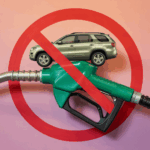Discover how savvy car owners are saving thousands through smart state registration strategies.
Navigating vehicle registration costs in the United States has become a strategic game for car enthusiasts, collectors, and even everyday drivers seeking to maximize value.
Two standout options have emerged as prime tactics: forming Montana LLCs and leveraging South Dakota registration loopholes.
Understanding the differences—and potential pitfalls—between these methods is critical for anyone aiming to save money on car registration in 2025.
Why registration costs vary so much across states
The U.S. is a patchwork of different vehicle tax laws, registration fees, and sales tax structures. In states like California or New York, registering a luxury car can cost thousands annually, not including steep sales taxes that can add up to 10% of the vehicle’s value. On the other hand, states like Montana and South Dakota offer unique legal frameworks that drastically reduce these expenses.
Understanding these variations helps car buyers avoid unnecessary costs and plan strategically for vehicle ownership in 2025.
How Montana LLCs slash vehicle registration costs
Montana stands apart because it imposes no sales tax on vehicle purchases. Buyers can create a Limited Liability Company (LLC) in Montana, even without residing there, and have the LLC purchase the vehicle. The result? A significant saving on the upfront cost.
For instance, registering a 2025 Porsche 911 Turbo S (base price: $234,000) via a Montana LLC means you could legally avoid paying approximately $20,000 in sales tax if you live in a state like California. Furthermore, Montana’s flat registration fees are extremely low—around $217 for a five-year registration for vehicles under 11 years old.
Key benefits of Montana LLC registration:
-
No sales tax on vehicle purchases
-
Low flat registration fees
-
No requirement for annual vehicle inspections
-
Minimal ongoing maintenance for the LLC
However, it’s important to note that improper use of Montana LLCs could trigger penalties if your home state discovers that your car is garaged primarily outside of Montana. Enforcement has increased, particularly in states like California, Washington, and Colorado.
Why South Dakota is a favorite for quick and affordable registration
South Dakota offers another powerful registration advantage: easy remote registration. Residents and non-residents alike can register vehicles without physically entering the state. Mail-in registration is not only legal but encouraged, making South Dakota an appealing option for RV owners, digital nomads, and supercar enthusiasts alike.
Unlike Montana, South Dakota does have a 4% sales tax on vehicle purchases, but it is still far lower than the national average. Additionally, registration fees are based on the vehicle’s weight and age, typically ranging from $70 to $200 annually.
Consider the 2025 Tesla Model S Plaid (starting price: $89,990). Registering it in South Dakota could cost as little as $140 annually in fees, with an additional one-time 4% tax. This makes it significantly more affordable compared to registering in states like Illinois or New Jersey.
Key advantages of South Dakota vehicle registration:
-
Remote registration process
-
Low annual registration fees
-
No vehicle inspections required
-
Lenient residency requirements (a simple overnight stay or a mailbox service often suffices)
Montana LLC vs. South Dakota registration: Which one is better in 2025?
Each option serves different needs:
-
Montana LLCs are ideal for those buying high-value vehicles and aiming to completely eliminate sales tax. Think exotic cars like the 2025 Lamborghini Revuelto (starting at $608,358) or rare collector’s vehicles.
-
South Dakota registration fits better for those with moderately priced vehicles, RVs, or for those seeking an ultra-simple, low-maintenance registration solution.
In 2025, legal scrutiny around Montana LLCs has intensified, particularly concerning proof of garaging and insurance disclosures. By contrast, South Dakota’s requirements remain straightforward, with minimal enforcement targeting non-resident vehicle owners.
Important legal and insurance considerations
Regardless of the method you choose, ensuring that your insurance matches your registration state is critical. Insuring a Montana-registered vehicle primarily garaged in Texas, for example, could invalidate your policy if not disclosed properly.
Additionally, be aware that some lenders are reluctant to finance vehicles through Montana LLCs unless you already have an established entity. Cash purchases sidestep this issue, making these strategies particularly popular among affluent buyers.
Tax authorities in high-tax states have also become more aggressive. In 2025, California’s Franchise Tax Board has hired more investigators specifically to identify vehicles improperly registered out-of-state. Compliance, accurate paperwork, and legal advice are more essential than ever.
Which types of vehicles benefit most?
-
Supercars and luxury cars: Save tens of thousands on taxes and fees
-
RVs and motorhomes: Enjoy low annual fees with mail-in renewals
-
Collector vehicles: Preserve value with minimal ongoing costs
-
Fleet vehicles for businesses: Reduce operating expenses legally
For those registering a 2025 Mercedes-Benz Sprinter RV conversion (starting around $172,000), using South Dakota’s remote registration can mean substantial savings over time, especially given the vehicle’s weight-based registration formula.
Final recommendation for 2025 vehicle registration strategies
Those purchasing high-end vehicles primarily for collection or occasional use should seriously consider a Montana LLC setup. Meanwhile, frequent travelers, RV owners, or those with moderately priced luxury vehicles will find South Dakota a more practical, low-risk solution.
Understanding these nuances—and aligning them with your personal or business needs—is the best way to ensure you capitalize on the cheapest states to register a car in 2025, without exposing yourself to unnecessary risks.


